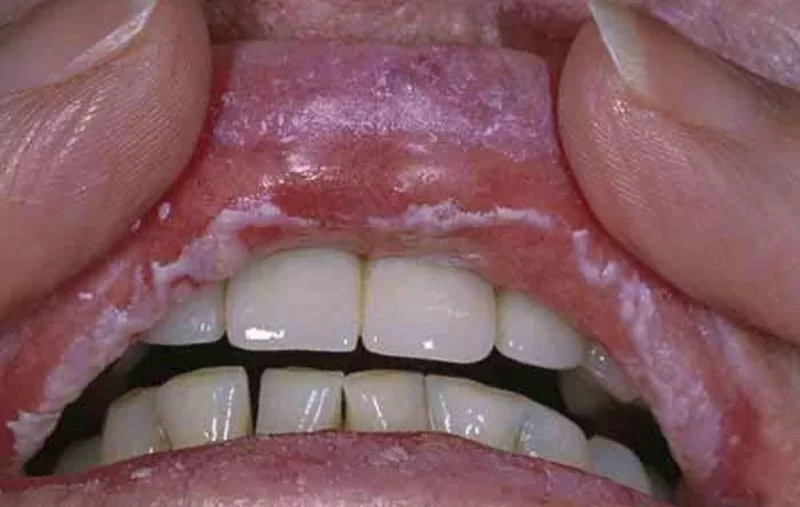
Common Signs of Oral Fungal Infection in Seniors and How to Spot Them
- 1 - why-seniors-are-more-prone-to-oral-fungal-infections
- 2 - most-common-signs-of-oral-fungal-infection-in-seniors
- 3 - real-case-how-oral-thrush-altered-a-seniors-life
- 4 - what-to-do-if-you-suspect-an-oral-fungal-infection
- 5 - prevention-tips-and-ongoing-dental-care-for-the-elderly
1. Why Seniors Are More Prone to Oral Fungal Infections
As we age, our immune systems naturally weaken. Combine that with factors like dentures, dry mouth due to medication, and underlying health issues such as diabetes—and the risk of developing a fungal infection in the mouth increases substantially. For seniors, the delicate balance of oral bacteria and fungi can be easily disrupted, allowing organisms like Candida albicans to overgrow and cause discomfort or infection.
Understanding the signs of oral fungal infection in seniors begins with knowing why they’re more vulnerable in the first place. By addressing the root causes early, we can reduce complications and avoid severe oral health problems.
2. Most Common Signs of Oral Fungal Infection in Seniors
Symptoms may vary depending on the severity of the infection and the individual's health status. However, some telltale signs often appear, including:
- White, creamy patches on the tongue, cheeks, or palate- Cracking and redness at the corners of the mouth (angular cheilitis)- Soreness or a burning sensation, especially when eating spicy or acidic food- Difficulty swallowing or a sensation that food is stuck in the throat- A dry or cotton-like feeling in the mouth- Loss of taste or metallic taste
These signs of oral fungal infection in seniors are often mistaken for other dental or dietary issues. That’s why professional evaluation is crucial.
3. Real Case: How Oral Thrush Altered a Senior’s Life
Mrs. Elaine B., age 76, began experiencing a persistent burning sensation in her mouth. At first, she believed it was due to her new dentures. But when white patches started appearing along her inner cheeks, her daughter insisted on a dental visit. A diagnosis of oral thrush in an elderly patient was made quickly.
Elaine’s recovery involved antifungal medication, denture sanitizing routines, and better hydration. But more importantly, it opened her eyes to the importance of ongoing senior oral health support—something she now maintains with the help of Dentistry Toothtruth.
4. What to Do If You Suspect an Oral Fungal Infection
If you or a loved one notices any of the symptoms mentioned above, don’t wait. Contact a dental care provider immediately. The earlier a fungal infection of the mouth is diagnosed, the easier it is to treat with antifungal agents and lifestyle adjustments.
In some cases, further testing may be required to rule out underlying causes such as nutritional deficiencies, diabetes, or cancer treatment side effects. Follow-up care is essential to prevent recurrence.
5. Prevention Tips and Ongoing Dental Care for the Elderly
Preventing oral fungal infections in seniors is possible with the right habits:
- Clean dentures thoroughly and remove them overnight- Stay well hydrated to reduce dry mouth- Visit a dentist regularly for cleanings and oral exams- Avoid sugary and acidic foods that encourage fungal growth- Use prescribed antifungal mouth rinses if advised
Regular care and awareness of signs of oral fungal infection in seniors can go a long way in maintaining overall well-being. When in doubt, turn to trusted experts like those at Dentistry Toothtruth for personalized guidance and prevention-focused care.







 Children Dental World4.0 (1512 review)
Children Dental World4.0 (1512 review) Inspire Dental of Maine4.0 (297 review)
Inspire Dental of Maine4.0 (297 review) Woodbridge Dental Group and Orthodontics4.0 (265 review)
Woodbridge Dental Group and Orthodontics4.0 (265 review) MDS Dental Solutions, LLC0.0 (0 review)
MDS Dental Solutions, LLC0.0 (0 review) Fusion Dental Care4.0 (1116 review)
Fusion Dental Care4.0 (1116 review) Horton Orthodontics4.0 (426 review)
Horton Orthodontics4.0 (426 review) The Importance of Oral Health Education During Pregnancy for a Healthy Pregnancy
The Importance of Oral Health Education During Pregnancy for a Healthy Pregnancy Best Tips for Brushing Your Teeth Properly for Healthy Gums: Essential Techniques for Oral Health
Best Tips for Brushing Your Teeth Properly for Healthy Gums: Essential Techniques for Oral Health Why Skipping Dental Checkups Can Lead to Bigger Oral Health Problems
Why Skipping Dental Checkups Can Lead to Bigger Oral Health Problems Advantages of Porcelain Dental Restorations
Advantages of Porcelain Dental Restorations How Can Diabetes Cause Tooth and Gum Problems? Preventing and Managing Oral Health Issues
How Can Diabetes Cause Tooth and Gum Problems? Preventing and Managing Oral Health Issues Healthy Habits for Promoting Good Oral Health and Hygiene: Tips for a Healthy Smile
Healthy Habits for Promoting Good Oral Health and Hygiene: Tips for a Healthy Smile